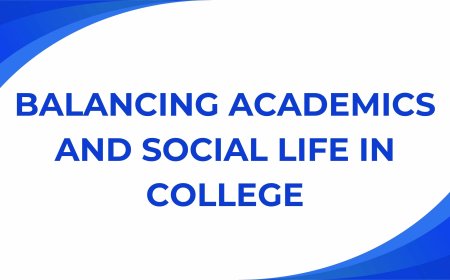The Role of Open Access Journals in Improving Higher Education Quality
How open access journals are revolutionizing higher education quality. Learn about enhanced accessibility, research impact, collaboration, and ethical considerations

Higher education stands as a cornerstone of societal progress, fostering critical thinking, innovation, and research. Central to this mission is the effective dissemination of scholarly knowledge. Historically, academic publishing has relied on subscription-based models, often creating formidable barriers to access for researchers, students, and the wider public. However, the advent of open access (OA) journals has catalyzed a transformative shift, profoundly influencing quality in higher education journal publishing and the overall academic ecosystem. This guide explores the multifaceted ways in which open access journals contribute to enhancing the quality of higher education, fostering a more equitable, collaborative, and impactful research environment.
Breaking Down Barriers: Enhancing Accessibility and Inclusivity
The most immediate and apparent benefit of open access journals lies in their commitment to unrestricted accessibility. By removing paywalls and subscription fees, OA journals ensure that research findings are freely available to anyone with an internet connection, regardless of their institutional affiliation, geographical location, or financial capacity. This democratization of knowledge has profound implications for higher education globally.
In developing nations, where access to expensive proprietary journals is often limited, open access journals provide an invaluable resource, enabling researchers and students to engage with the latest scientific and scholarly advancements. This equitable access fosters a more inclusive academic community, allowing a wider pool of talent to contribute to and benefit from global research efforts. Consequently, this broadens the intellectual discourse, leading to a richer and more diverse range of perspectives informing research and teaching. Institutions, by supporting and utilizing OA resources, actively promote global academic equity, thereby enhancing their own standing as hubs of accessible knowledge.
Accelerating Research Dissemination and Impact
Beyond mere access, open access journals significantly accelerate the dissemination of research findings. Traditional publishing models often involve lengthy peer review and publication cycles, delaying the availability of critical new knowledge. OA journals, particularly those employing continuous publishing models or pre-print servers, can make research available much more rapidly. This immediacy is crucial in fast-evolving fields where timely access to new data and theories can drive further breakthroughs.
Increased visibility also directly translates into greater research impact. Studies consistently demonstrate that open access articles receive more citations and are downloaded more frequently than their subscription-based counterparts. This heightened discoverability means research reaches a larger audience of scholars, practitioners, and policymakers, leading to greater engagement, utilization, and ultimately, a more profound influence on their respective fields. For academic institutions, fostering such high-impact research elevates their scholarly reputation and contributes significantly to their overall standing in the global academic community. Researchers, by choosing OA venues, actively enhance the potential reach and influence of their work.
Fostering Collaboration and Interdisciplinary Research
The unrestricted availability of research through open access journals naturally encourages greater collaboration. When researchers can easily access and build upon the work of others, irrespective of institutional or national boundaries, interdisciplinary research thrives. Barriers to collaboration, such as the inability to access a colleague's published work due to licensing restrictions, are entirely removed.
This ease of access facilitates the cross-pollination of ideas across different disciplines, leading to innovative approaches and solutions to complex global challenges. For example, a researcher in public health can readily access sociological studies, or an environmental scientist can consult economic analyses without hindrance. This collaborative environment is highly conducive to producing more holistic and impactful research, which in turn enhances the quality in higher education journal output. Furthermore, it creates opportunities for students to participate in broader research networks, enriching their learning experience and preparing them for a highly interconnected global research landscape.
Elevating the Peer Review Process and Enhancing Transparency
A common misconception is that open access inherently implies a lower standard of peer review. In reality, many reputable open access journals adhere to rigorous peer review processes that are comparable to, or even exceed, those of traditional subscription journals. The integrity of the peer review process is fundamental to maintaining academic rigor and ensuring the reliability of published research.
In fact, some open access models embrace innovative peer review practices, such as open peer review, where reviewer identities and comments are published alongside the article. This increased transparency can foster greater accountability among reviewers and authors alike, potentially leading to more constructive feedback and higher-quality revisions. Moreover, the emphasis on data availability and reproducibility in many open access mandates further strengthens the scientific process. When researchers can scrutinize the underlying data and methodologies, it enhances the credibility and robustness of the published findings. This commitment to transparent and robust review mechanisms is vital for ensuring the continued quality in higher education journal publications. For authors, understanding the nuances of these review processes and seeking professional writing editing and scientific proofreading services can significantly improve their chances of successful publication.
Challenges and Quality Assurance in the Open Access Landscape
While the benefits of open access are substantial, it is imperative to acknowledge and address the challenges that exist, particularly concerning quality assurance. The rapid proliferation of open access journals has unfortunately led to the emergence of "predatory journals" entities that prioritize profit over scholarly integrity, often publishing articles with little to no genuine peer review. This phenomenon poses a significant threat to the reputation of legitimate open access publishing and can undermine trust in the scholarly communication system.
Therefore, vigilance and discernment are crucial. Researchers and institutions must rely on established directories like the Directory of Open Access Journals (DOAJ), which rigorously vets journals for legitimate peer review processes and ethical publishing practices. Furthermore, academic institutions play a vital role in educating their faculty and students about identifying reputable open access venues. Publishers of open access journals must also continue to uphold the highest standards of peer review, transparency, and ethical conduct to distinguish themselves from predatory actors. Maintaining quality in higher education journal publishing within the OA framework requires collective effort from authors, reviewers, institutions, and publishers.
Financial Models and Sustainability: Supporting Open Access Infrastructure
The transition to open access necessitates a shift in financial models. While traditional journals rely on subscription fees, open access journals typically fund their operations through various mechanisms, most commonly Article Processing Charges (APCs) paid by authors or their institutions, or through institutional subsidies and grants. This shift has raised concerns, particularly for researchers without access to institutional funding or grants.
However, many institutions are establishing funds or agreements to cover APCs, and a growing number of open access journals operate on models that do not levy author charges (e.g., through institutional support or volunteer efforts). Ensuring the financial sustainability of high-quality open access journals without creating new barriers for authors is a critical ongoing challenge. Universities, research funders, and governments all have a role to play in developing robust and equitable funding models that support a thriving open access ecosystem. This includes advocating for policies that mandate open access for publicly funded research, thereby ensuring that the outputs of publicly financed endeavors are accessible to all. The long-term viability of quality in higher education journal publishing in the open access realm depends on innovative and sustainable financial strategies.
The Role of Academic Support Services
The burgeoning landscape of open access, coupled with the increasing demands for high-quality research, underscores the critical role of academic support services. University libraries are at the forefront, guiding researchers on open access policies, identifying reputable journals, and often managing institutional repositories. Beyond libraries, professional editing services have become indispensable.
For authors navigating the intricacies of scholarly publishing, whether in open access or traditional journals, services offering professional writing editing and scientific proofreading are invaluable. They ensure manuscripts meet the stringent standards of academic rigor, clarity, and linguistic precision. Similarly, thesis editing services provide crucial support for postgraduate students, helping them refine their dissertations into publishable works. These services enhance the overall quality of submissions, thereby bolstering the standing of both individual researchers and their institutions in the global academic arena. The commitment to producing polished, error-free scholarship, regardless of the publishing model, directly contributes to the perceived quality in higher education journal output and its broader impact.
A Paradigm Shift for Academic Advancement
Open access journals are undeniably playing a pivotal role in improving quality in higher education journal publishing and, by extension, the broader landscape of higher education. By fostering unparalleled accessibility, accelerating research dissemination, promoting collaboration, and encouraging transparent peer review, they are dismantling historical barriers to knowledge. While challenges related to predatory publishing and sustainable funding models persist, the momentum towards open access is undeniable and irreversible.
As higher education institutions continue to embrace and champion open access principles, they not only enhance their own research output and global standing but also contribute significantly to a more equitable and informed global society. The future of academic excellence is intrinsically linked to the continued growth and integrity of the open access movement, ensuring that knowledge truly serves as a universal resource for progress and innovation.

































